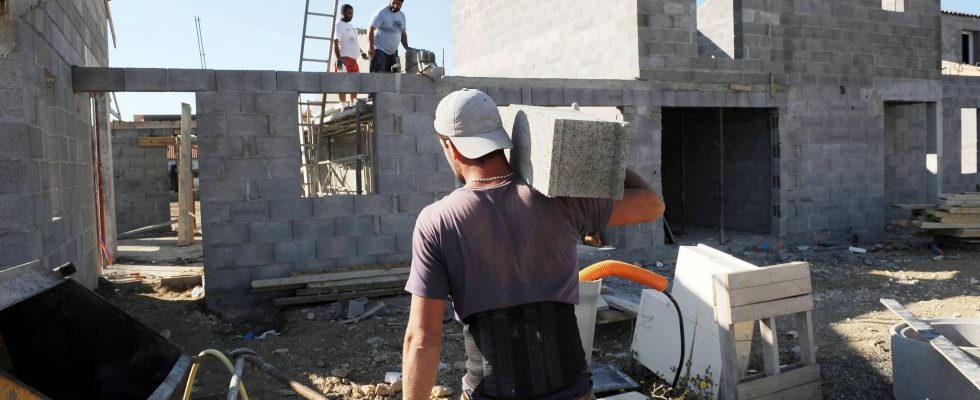All sections of society are affected by the effects of climate change. The summer of 2022, historically hot and dry, showed, if need be, that work is also fully affected by these extreme events. How to adapt practices in the event of a heat wave? And anticipate future changes? The Economic, Social and Environmental Council (Cese) has worked in recent months on the impact of the climate on the health of workers. Opinion co-rapporteur “Work, health, environment”Jean-François Naton (CGT) delivers to L’Express the results of the work of the Cese, which he unveils this Tuesday, April 25 in plenary session.
L’Express: What are the recommendations of your report on the impact of climate change on occupational health?
Jean-Francois Naton: We already had, at Cese, a reflection on the centrality of work. Then the summer of 2022 arrived. It seemed obvious to us to look into the impact of climate change on work situations, and its consequences in terms of health. Inevitably, the climate will force us to work differently.
First observation: the issue of climate change mitigation must be combined with that of adaptation. Clearly, if we put air conditioning everywhere, we will perhaps adapt, but also not attenuate the phenomenon. There is a real challenge not to be in the “mal-adaptation”.
The other determinant of our reflections is the notion of overall health. There needs to be a real strategy in this sense, that is to say take into account all exposures to individuals. One of our recommendations is the establishment of an interministerial delegate, at Matignon, to better coordinate all health strategies. In the territories, the social partners should also take part in the Departmental Health Councils, because occupational health issues are not addressed there. Work, if it is to be a determinant of health, must be present everywhere.
There is also the question of research. We have too little work on the effects of temperatures above 40°C on paint, solvents – in short, on a whole universe of work. The cocktail effects are not at all anticipated, because the studies are not done on extreme temperatures. Last conviction: we must broaden the debate and open a new age of democracy at work. It is recommended that the duty to listen be the tenth of the general principles of prevention in the Labor Code.
Is social dialogue lacking on the climate issue?
This was evident from our study carried out at the end of last year. Awareness is there, but it is not yet embodied within companies. This is why we insist on training: that of managers, elected officials, etc. But also prevention specialists, who have not yet fully integrated the effects of the climate on work situations into their approach. The CSEs (social and economic committees), since the disappearance of the CHSCTs – whose work was not sufficiently followed up – have had great difficulty in tackling these issues.
We must give voice to those who do. We suffer from a real lack of democracy and participation in the workplace. There can no longer be social dialogue without combining it with professional dialogue. The divine power of the employer who would decide everything, or of experts who would think of the work apart from those who do it, is no longer possible.
Is the existing legislation sufficiently enforced?
Our great drama, in France, is that the laws pile up but are rarely applied. There are no recommendations on our part to add laws upon laws. There is more a reflection on the effectiveness of what is. For example, in the Labor Code, it is noted that the work must be adapted to the person. What does this imply? What are we doing for climate change? This requires experimentation, accompanying the transformations, talking to each other.
Do you have any recommendations for the professions most at risk?
These are all those outdoors, who are confronted with the heat without any means of protecting themselves: construction workers, public works, farmers… There is certainly an acceleration of research on suitable and cooling clothing, but that will not be enough. It is therefore recommended that the heat wave be considered as bad weather. In construction, work is stopped in the event of severe frost or snow. The heat wave must also be considered as a reason for stopping work.
In our work, we also notice many problems related to sleep and overfatigue. If the impact of climate change primarily affects outdoor workers, every working citizen was affected by the climate last summer. And it will be again.
What are the solutions envisaged to adapt work to hot weather?
Many options will arise: shifts in certain schedules, installation of air conditioning… But there is a need to see company by company, post by post, to reorganize work in the event of a heat wave. At the start of the last school year, we were told of schools with large bay windows, so not at all suitable for hot weather… We must already start by hanging curtains. Sometimes the solutions are very basic and need to be implemented quickly.
In addition, the existing hardships will be accentuated. Before working more, let’s talk about working differently. It is already complicated to go up to 62 years in certain professions, then later… We missed the subject. Let’s already ask ourselves the question of how we will work this summer, with the heat wave. Then the years that will follow. There is an inescapable side. The political responsibility would have been to engage in this field, which is not done for the moment. I hope that our opinion can help put the discussions back in the right direction.
